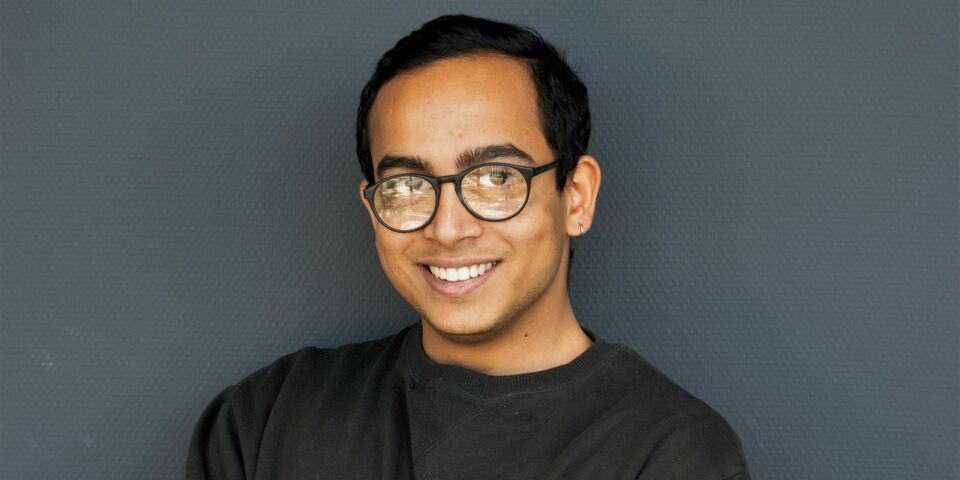Uncertainty about residence permit because of corona crisis
The corona crisis has additional consequences for many internationals in the Netherlands. What happens if your residence permit expires due to a study delay that became inevitable because of corona? And what if you have not been able to search for a job for many months during your residence permit 'orientation year highly educated persons'? The world stopped turning for months, but the clock kept ticking.
Vimukthi Gunatilleke from Sri Lanka graduated July last year and has been in the Netherlands for almost four years now. “I got my bachelor in Industrial Design at TU/e and spent the months after looking for a job. It was not easy, because I quickly noticed that employers want you to have experience. No job without experience, but you do not gain experience unless you have a job. A vicious circle."
Corona made it even more difficult and he lost more than four months of his search year. He now hopes that the Immigration and Naturalisation Service (IND) will give him and others in the same situation an extension of the residence permit 'orientation year highly educated persons' - among students and alumni also known as ‘search year’. “I've been searching constantly, trying everything to find a job, so I think it's just fair that I get an extension of the months I've lost because of corona. The purpose of the permit was to look for a job and I couldn't do that properly for over four months.”
To gain experience, Gunatilleke decided to register at the Chamber of Commerce as a freelancer. But he still needs a job to be able to get a residence permit also after his orientation year. “You have to be hired as a highly educated migrant and the government has set a minimum wage for that. Despite positive job interviews, most employers were unable or unwilling to pay that required salary (2,423 euros gross per month for an international who recently graduated in the Netherlands) for someone like me who has just left university. I tried to search further and then corona came. Job interviews and freelance assignments were postponed; recruitment of new people was suspended except for essential positions. I called the IND and explained my situation to them. When I asked for an extension of my search year, they gave me a very general answer: "Be ready to leave by the time your residence permit expires."
Extension of the search year
“Students who have recently graduated or are about to do so are advised to, if desired, go back to their home country and to submit an application to the IND within three years after graduation in order to obtain a ‘residence permit 'orientation year highly educated persons'”, says Loes Buijssen, immigration officer at TU/e. That way, those students can use the search year at a more fortunate time. Graduates who have already started their search year do not currently have much choice but to look further during this time. "As far as I know, this residence permit cannot be paused," Buijssen says.
“The parties involved are currently examining whether the mentioned residence permit for students who are currently in their orientation year can possibly be extended. Then they can still use the lost months. But this has not yet been decided.” The spokesman for the IND, which grants the residence permits, also confirms when Cursor asked that there is currently no news about any extension of this residence permit.
Residence permit in case of study delay
TU/e itself does not issue visas or residence permits to students or employees, but does submit residence applications to the IND on their behalf. The university has a special position as a ‘recognized sponsor’ for this. For the purpose of studying alone, about three hundred applications for submitted last year. The residence permit applications are assessed by the IND and if all conditions are met, the application will be granted by the IND. Ultimately, the visa is issued to the student by a Dutch embassy or consulate abroad and the student is issued the residence permit by the IND in the Netherlands after entering the country. “The TU/e is currently working on the implementation of the policy regarding the extension of residence permits of current non-EEA students whose residence permits will expire before their study is completed, as a consequence of COVID-19,” Buijssen says.
Learning to distinguish yourself
In the meantime, Gunatilleke does not give up. He noticed that it is more difficult for Industrial Design and other creative studies’ graduates to be hired directly from the university. “Software engineers or mechanical engineers have a better position. Bureau Rust, where I found a part-time job, challenged me to figure out a way to help designers like me find a job. I created a course for them to help them find their unique selling points, develop additional skills and learn to stand out from the crowd. But you also learn how to approach companies and the differences in approach for smaller and larger companies. I get positive reactions: people learn things they didn't learn in college. The TU/e career advice I got was limited: use your network and apply regularly. I didn't get a lot of help from the university, which had me thinking ‘hey, I graduated from your university, why is it so hard for me? Students from other programs do find jobs.’ But now I try to help others with my experiences and I also hope to find a job myself in time.”


Discussion